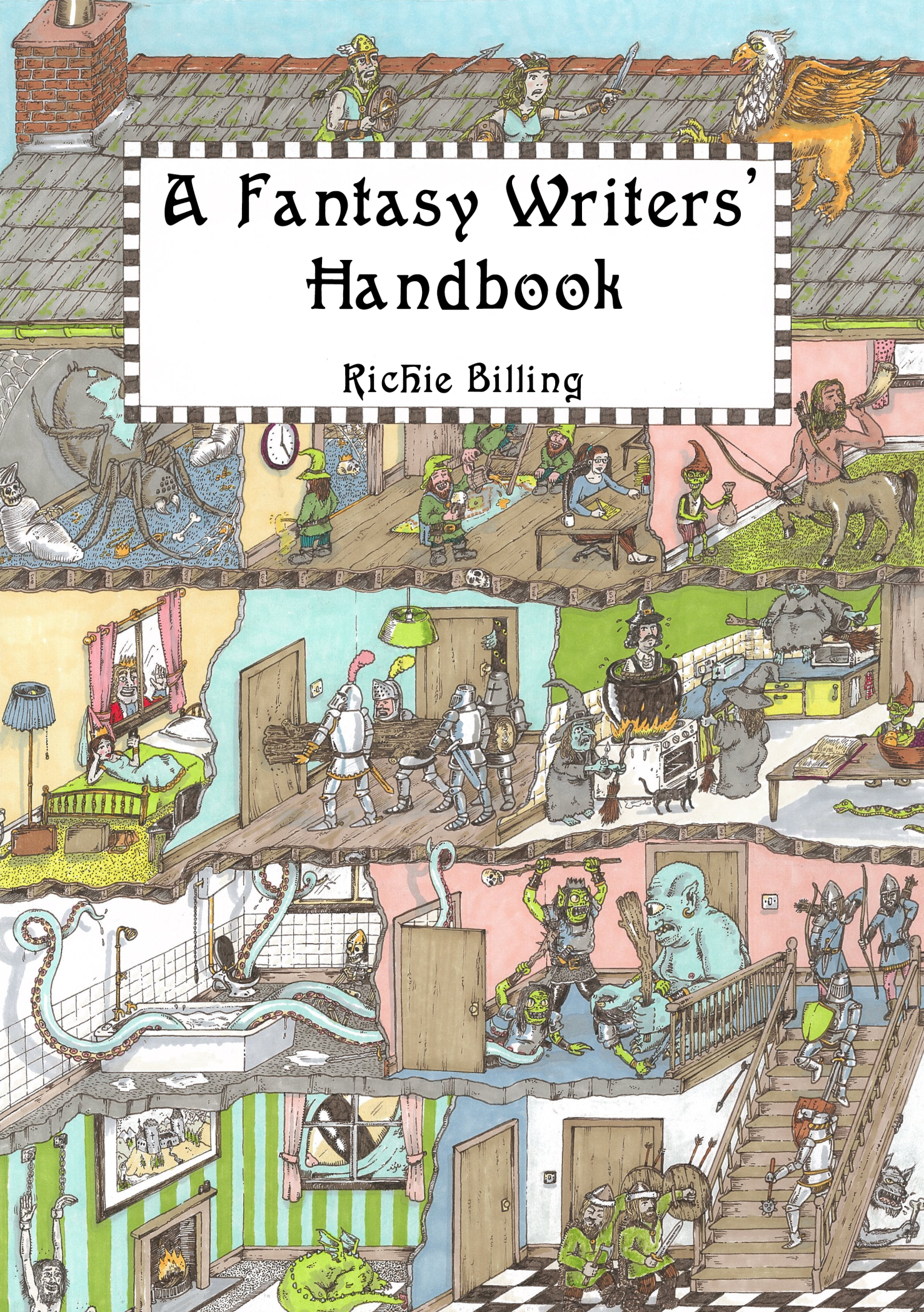The following article first appeared on richiebilling.com and to see the full article please visit his website at:
https://richiebilling.com/2017/08/08/7-ways-to-improve-as-a-writer/
1. Read

This seems to be the most golden of all rules.
”If you don’t have time to read, you don’t have the time (or the tools) to write.” Stephen King.
Reading teaches you the craft of writing. You learn new words, new perspectives, sentence structure, pacing, characterisation, plotting techniques, world-building approaches. You see the ‘rules’ and how they can be broken. Here’s another insightful quote, this time from George R.R. Martin:
“The most important thing for any aspiring writer, I think, is to read! And not just the sort of thing you’re trying to write, be that fantasy, SF, comic books, whatever. You need to read everything. Read fiction, non-fiction, magazines, newspapers. Read history, historical fiction, biography. Read mystery novels, fantasy, SF, horror, mainstream, literary classics, erotica, adventure, satire. Every writer has something to teach you, for good or ill. (And yes, you can learn from bad books as well as good ones — what not to do).”
As well as enjoying (or hating a story) it’s important to pay attention to the craft of how it’s written. If you’re unsure of a word, take the time to look up the definition and a few example sentences. With a critical eye observe word usage, syntax, structure, plotting.
To get through a few more books, you could try audiobooks. Stephen King says he listens to them while driving, a much more productive alternative to listening to Led Zeppelin IV for the umpteenth time. There’s a website (and also an app), audiobooks.com, which has few free ones. You’ve nothing to lose in trying it.
2. Practice
You practice your craft as much as you can. With everything life has to throw at us it can be hard to find the time and motivation to write. But something is better than nothing. Every word is a step in the right direction.
Take a leaf out of Joanna Cannon’s book (excuse the pun). While working as a psychiatric nurse in an underfunded NHS she wrote her debut, bestselling novel, cramming in words before work, after work and during breaks.
Remember, you’re practising and improving. Don’t put the pressure of trying to write a good book on your shoulders. Allow yourself the freedom to experiment and explore.
“The more you write, the better you’ll get. But don’t write in my universe, or Tolkien’s, or the Marvel universe, or the Star Trek universe, or any other borrowed background. Every writer needs to learn to create his own characters, worlds, and settings. Using someone else’s world is the lazy way out. If you don’t exercise those “literary muscles,” you’ll never develop them.”
Another great quote from G.R.R.M.
3. Listen
Lessons linger around every corner, but you must seek them. Everyone knows something you do not and there’s no shame in that. Those that succeed, listen. Begin with the basics and build from there. Read books on writing, watch lectures on Youtube, sign up for webinars, courses, workshops. Join forums or writing groups, discuss, share, critique.
You’re learning a new craft, and unless you’re James Joyce reincarnate you must take time to learn. Carpenters, electricians, doctors, lawyers go through years of training to master their fields. So must you.
They say it takes 10,000 hours of practice to master something. That’s about 90 minutes a day for 20 years. A daunting prospect, but achievable. Put in the work and trust that everything else will follow.
Consider joining a writing group or partnering up with someone who’s willing to edit your work. There’s always something you’ll miss that fresh eyes will pick up on.
4. Experience

The real world has the power to inspire you. Go hiking, walk around your park, even just walk down your street. Catching a glimpse into the personal life of a stranger can provoke ideas, so can seeing an unusual building or landmark.
Seeing the diversity in the appearance of people is a great source for character development. It’s remarkable how unique we all look; something I certainly take for granted. And it’s the little details that make wonderful stories.
Take a pen or paper, or make notes on your phone. Who knows when ideas will pop into your head.
5. Embrace failure
In failing we learn our weaknesses and better understand ourselves. It’s part of the process.
Don’t let those lows extinguish your desire and enthusiasm. You can write and you have a story worth telling. Accept that you’re not going to get it right first time, but be determined to keep going and succeed. When you finally achieve your goal it’ll feel better than taking any drug.
6. Keep faith
This one’s linked to failing. No matter how down you feel, how ill-motivated you are, how low your confidence may be, always cling to that flame of hope.
Savour the little successes, as slight as they may be. A new subscriber to your mailing list, a few lines of feedback in a rejection email, achieving your daily word count, even just writing a word (some days it can be that hard). The world may say no, but the only person who can blow out that hopeful flame is you.
7. Defeat procrastination
This is perhaps the most personal one of all for me. I’ll check my emails and 45 minutes later there I am scrolling through Twitter, a blank page before me.
Remove temptations. Turn off the wifi, leave your phone in another room. Tackle whatever defeats you head on, and be bold in your steps. No half measures, as everyone’s favourite meth cook Heisenberg would say. Allow your mind to focus, to forget, to engage. Check out my guide on duelling with the devil that is procrastination.
For more information on Richie Billing please visit his website at:

Leave a Reply